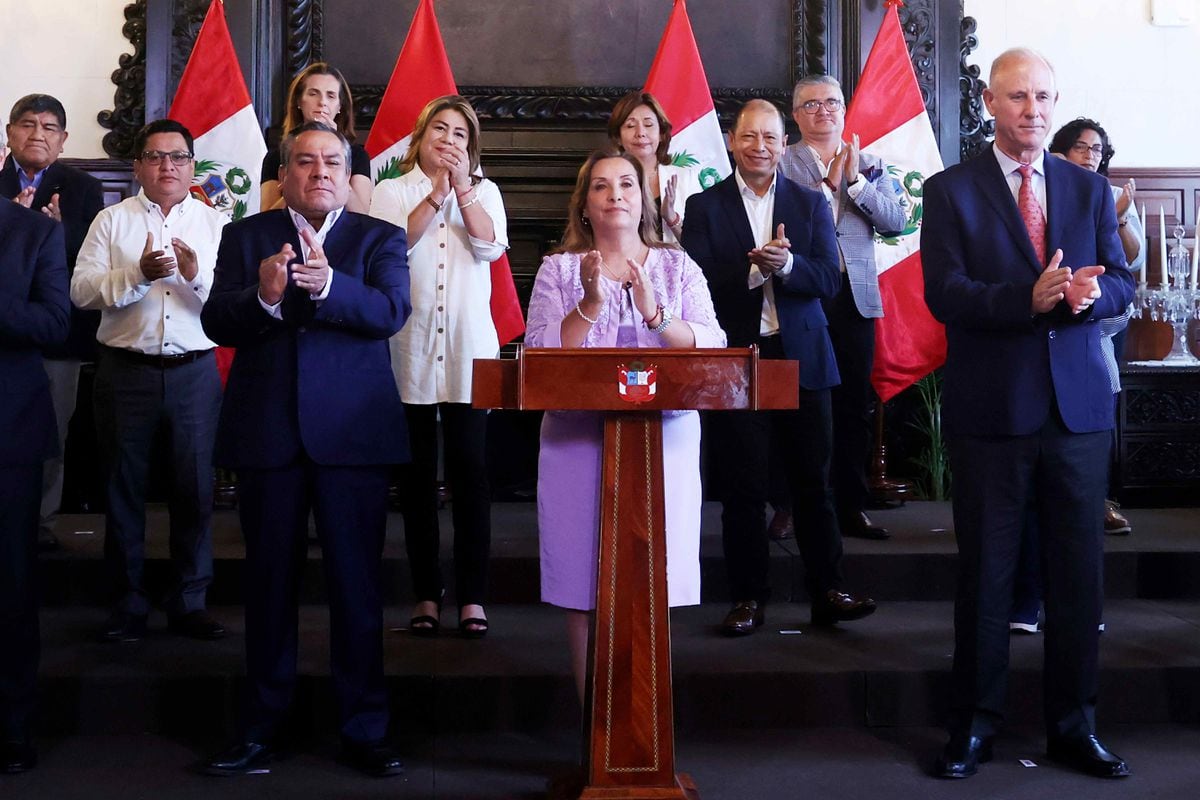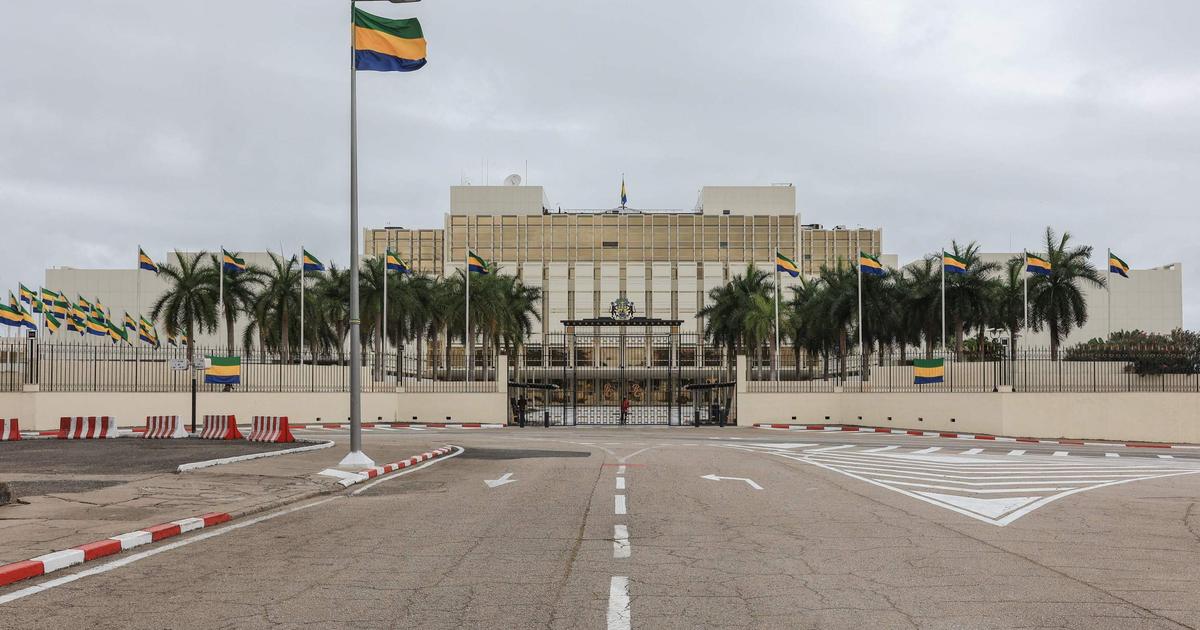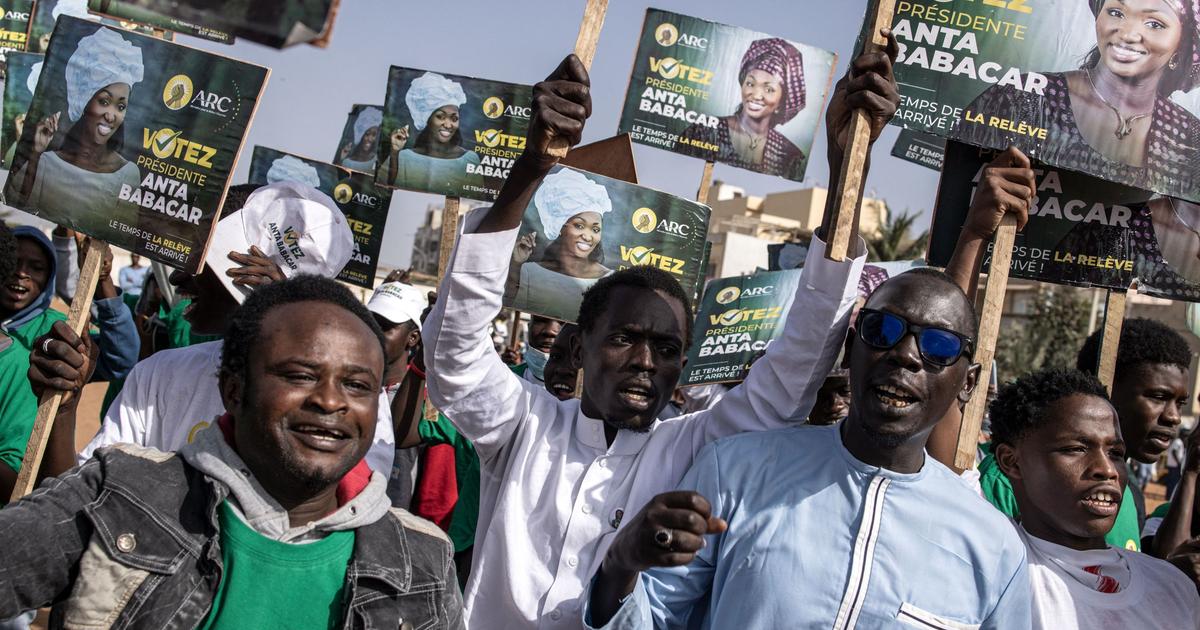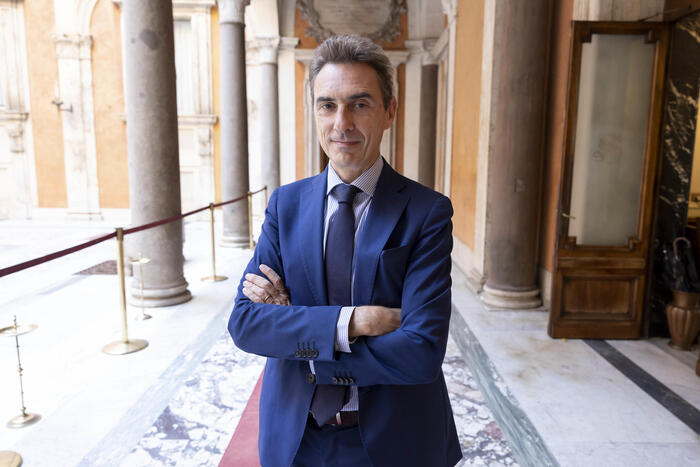"The story occurs twice, the first as a great tragedy and the second as a miserable farce."
This well-known phrase of Marx's in the "18 de brumario de Luis Bonaparte" falls like a glove to the "self-coup" of Pedro Castillo, in a crisis that was quickly revealed in the two hours that followed his midday speech on Wednesday the 7th.
Not only did the blood not reach the river, but for many a path of relative relief and even hope was opened after a coup that generated an unexpected course and vital national consensus in the midst of the growing polarization that had been corroding Peru. .
Day of crisis that led, no less, to a woman, Dina Boluarte, serving as head of state for the first time in republican history.
To this led, like an unexpected forcep, Castillo's unusual and unsuccessful purpose of overthrowing all the institutions to govern by decree.
He even used, as a “miserable farce”, exactly the same terminology that Fujimori used in 1992 ―“dissolve” Congress― but without counting on the well-oiled intelligence machinery of the autocrat of the 90s ―Vladimiro Montesinos― nor on a society then predisposed to support the concentration of power in the face of the ferocious attacks of Sendero Luminoso and the hyperinflation then reigning.
Several factors led to the crisis that erupted this week.
Three of them stand out.
First, the political context of the election of Pedro Castillo in 2021 and the months that followed during his government.
Period marked by aggressive resistance from the right that refused to accept the electoral result and acted accordingly: staunch opposition from Congress.
Posing
ad nauseam
Castillo's vacancy/resignation, even before he took office at the end of July of that year.
Preventing him from carrying out the functions of head of state in international relations, blocking, for example, congressional authorization for his trip to the inauguration of Petro in Colombia or to the recent meeting of the Pacific Alliance in Mexico a few weeks ago.
Everything started, then, in fits and starts and generated a growing desire for conspiracy that was a decisive ingredient in the growing polarization throughout the 16 months that followed.
Secondly, a government in which, if anything stood out, it was Castillo's inexperience and a calamitous "personnel selection" with some notable exceptions.
Following a succession of successes/errors, in the brief period of the Government, dozens of senior officials were appointed with little or no qualifications and even with a record, and no less than 81 ministers were changed, breaking from within any crack of stability and efficiency institutional.
In that succession of changes, moreover, the successes did not prevail.
The appointment of the last defense minister in recent days (Emilio Bobbio) could not fail to surprise;
because he had publicly threatened to "shoot" him, none other than the head of the National Intelligence Directorate (Dini), Wilson Barrantes.
Third, the numerous complaints and indications of corruption against high-level people in the Government, the immediate presidential entourage and, increasingly, the President of the Republic himself.
It is true that some of the complaints could be flimsy and were magnified/distorted by the mainstream media.
In addition, the presumption of innocence had to prevail in an overwhelming context that day by day turned a mere statement that had not been subject to corroboration into front-page “proven” data.
But, at the same time, however, Castillo himself or those around him did not show interest and determination to clarify the growing existing complaints, which led to additional well-founded suspicions.
This was generating the growing suspicion of Hamlet that "something is rotting in Denmark."
Unfortunate and sad end of a failed presidential administration that derived from a popular election that for the first time fell on the shoulders of a peasant and school teacher from the Andean highlands who briefly became hope for millions of men and women, especially those Andes.
That page was turned.
First, when the president was vacated by Congress in correct application of the Constitution, and when vice president Dina Boluarte later assumed the head of state.
One cannot forget in all this the central responsibility of Pedro Castillo before history, today detained, and on the verge of a judicial decision to arrest him and a criminal process that promises to last.
Turning the page, the big question is how long the open honeymoon will last with the perfectly constitutional succession produced in the midst of a framework of instability and polarization that has been dragging on since before the “Castillo administration”.
Dina Boluarte, a lawyer by profession and, like Pedro Castillo, from an Andean town (in her case, the region of Chalhuanca, Apurímac).
Boluarte had been giving clear and positive signs of a concerted spirit;
They were made explicit and exposed in the call to arrange the swearing in on Wednesday afternoon.
Agreement, however, which is not an easy bet in a context in which organic political representation and political parties have vanished, so things do not look easy.
A fundamental agenda and goals could underpin a constructive and viable political process: recovering the balance of power;
promote a national dialogue;
against corruption, adequate political decisions and support for serious investigations;
efficient and democratic strategy of articulation with regional governments;
articulate a foreign policy that aims to coordinate strategies with the countries of the region in the face of the difficult global environment;
and radical improvement in the recruitment capacity to perform high government functions and, with it, overcome the disastrous inefficiency in the execution of public spending that prevails today.
Subscribe to continue reading
Read without limits
Keep reading
I'm already a subscriber

/cloudfront-eu-central-1.images.arcpublishing.com/prisa/MHJZMGZRMLQWXF74MU4TXQ2TGA.jpg)

/cloudfront-eu-central-1.images.arcpublishing.com/prisa/AXHYDCVCLRA3DGM5WRNHHS2OKQ.jpg)





